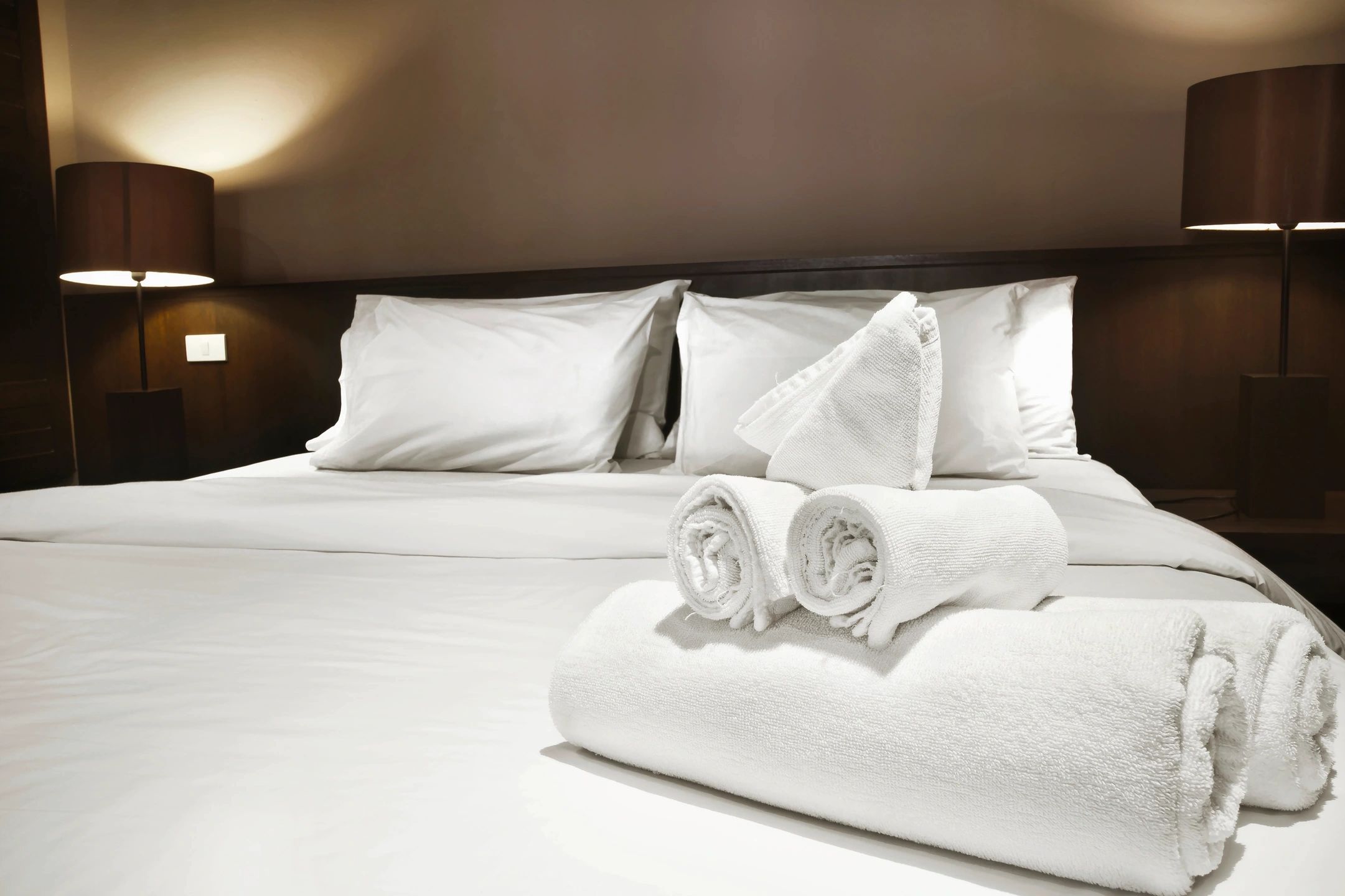Rating Disaster Resilience of Hotels
This COVID-19 pandemic is an unprecedented event that has led to massive unemployment and economic downturns worldwide. The hotel sector, which is highly dependent on tourists and travelers, has been severely affected. Now that restrictions are slowly being lifted, and some semblance of normalcy is beginning to come back, what should hotel owners and management do to win back guests while also preparing for the next global disaster? What can hotels do to become more disaster resilient?
A group of graduate students of the Executive Master in Disaster Risk and Crisis Management (AIM), studying disaster risks and crisis management from one of the country’s leading learning institutions, is taking on the challenge of driving resilience consciousness among hotelgoers.
Their thesis project — the Disaster Resilience Rating for Hotels (DRRH), is specifically designed to enable the accommodations industry to bounce back better after every disaster.
According to the group leader, Randell Kitt Botero, “In today’s volatile, uncertain, complex, and ambiguous world, resilience has become a buzz word. While usually associated with disasters and crises, the term is now widely used across disciplines. That said, it has also come to mean different things to different people. Some equate resilience with preparedness. Others associate it with being able to respond and effectively manage hazard events. In the broader interpretation of the word, it means the ability to bounce back after a shock. But what does disaster resilience mean for the hotel industry? This is at the core of our thesis.”
The group’s thesis project is anchored on the Resilience Programming Framework (RPF) developed by Resilient.PH. The framework integrates already existing principles Into the organization’s very DNA, thus reframing traditional approaches on the need to effectively and sustainably bounce back better.
How does it work?
The DRRH capitalizes on the basic need of hotels to promote and market itself to prospective guests. It allows hotels to market their properties, facilities, and services from a different perspective — its ability to bounce back better from disasters and crises.
Following the framework, the rating looks into a hotel’s policies, programs, tools, systems, and training that will allow it to prevent, mitigate, prepare for, and respond to disasters.
Through the DRRH, these elements of operations that are not usually known to the public are evaluated and packaged such that potential guests are made aware of the hotel’s ability to ensure their safety and well-being before, during, and after any disaster or crisis. Thus, the DRRH strengthens the hotel’s reputation while reinforcing resilience consciousness among its stakeholders, most especially the hotel-going public.
“We have seen how some hotels have been used as temporary quarantine or isolation facilities to help manage the spread of the pandemic. This is a testament to these hotels’ agility and disaster response capabilities. That is to say, and these hotels have built-in resources and protocols that allow them to function or continue operations despite the contagion.” Dennis Plaza, the group’s security expert, shared.
“With natural and man-made hazards that constantly surround us as well as disaster and resilience, conscious consumers will more closely scrutinize the increasing frequency and severity of disasters, hotels, and other similar establishments. Today, it is no longer just about impressive facilities, state-of-the-art amenities, service excellence, and high-quality dining options. Level of preparedness, protocols for a response, availability of contingency plans and resources — all these will factor in an individual’s choice of accommodation.” added Joel Gabino, a member of the group from the Philippine Air Force.
According to the group’s organizational health and safety expert, Richard Legarda, because the project is designed to highlight the added values you get from your hotel of choice, it will ultimately drive healthy competition across the industry. The fight to win more guests between rivals will help society, in general, as more consumers become aware and, consequently, demand disaster resilience in allied industries, and eventually, every industry on the planet.
Aside from the marketing and promotional benefits of the rating, the process behind it will also benefit the hotel. Hotels will be able to deepen their understanding and appreciation of their risks, discover opportunities for improvement in their disaster management plans, and from there, initiate improvements that will further secure the health, safety, and well-being of their guests, their employees, and the communities where they operate.
The standards of disaster resilience that form the evaluation criteria for the DRRH was co-created by the group together with the Hotel and Restaurant Association of the Philippines (HRAP). As a prime mover of the hotel industry in the Philippines, the association collated and reviewed the local and international standards and best practices that went into the rating.
HRAP President Eugene Yap said, “This project comes at an opportune time when all stakeholders are being called upon to support government programs in attaining disaster resilience. An industry-based disaster resilience standards will focus on the unique hotel requirements while adapting to the “new normal” caused by the Covid-19 pandemic. These standards will provide the initiatives will indeed mitigate the loss of properties and loss of lives as well as providing the industry with the tools of prevention, preparedness, response, rehabilitation, and recovery.”
The group behind the DRRH, their collaborators from the industry, the government sector, and the disaster management field all agree that there is no better time than today to start building resilience. With the pains we are going through with Covid-19, and the threat of another disaster that always hangs above our heads because of climate change, we cannot afford to waste any more time.


A key objective for the hotel industry in the new normal. In addition to comfort, convenience and customer service, hotels that can best convince potential clients their ability to keep them safe from the type of health threats posed by this pandemic will be the ones that will thrive.